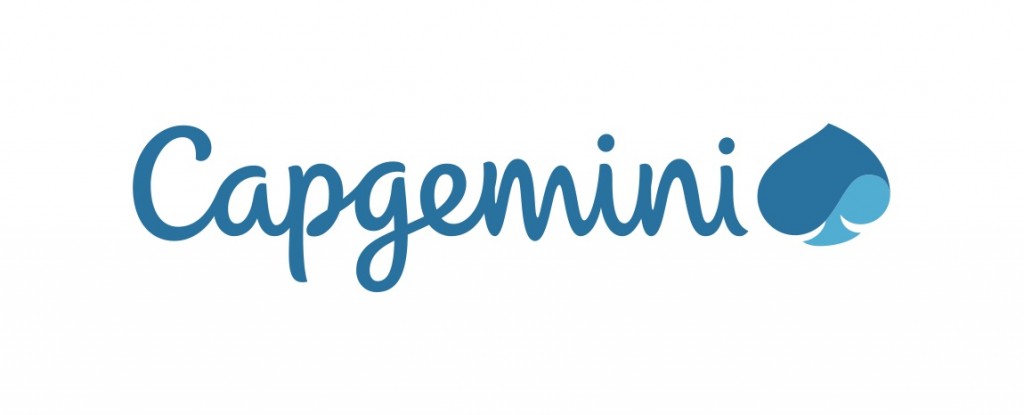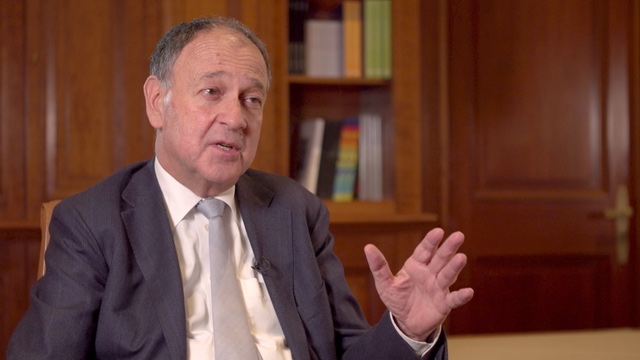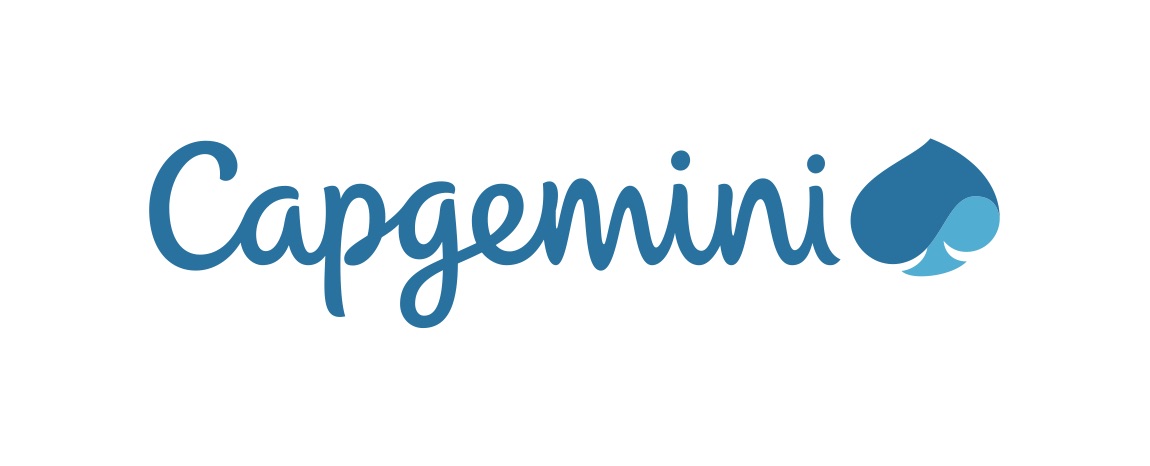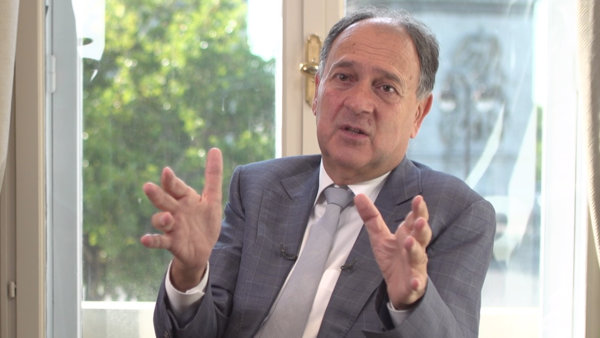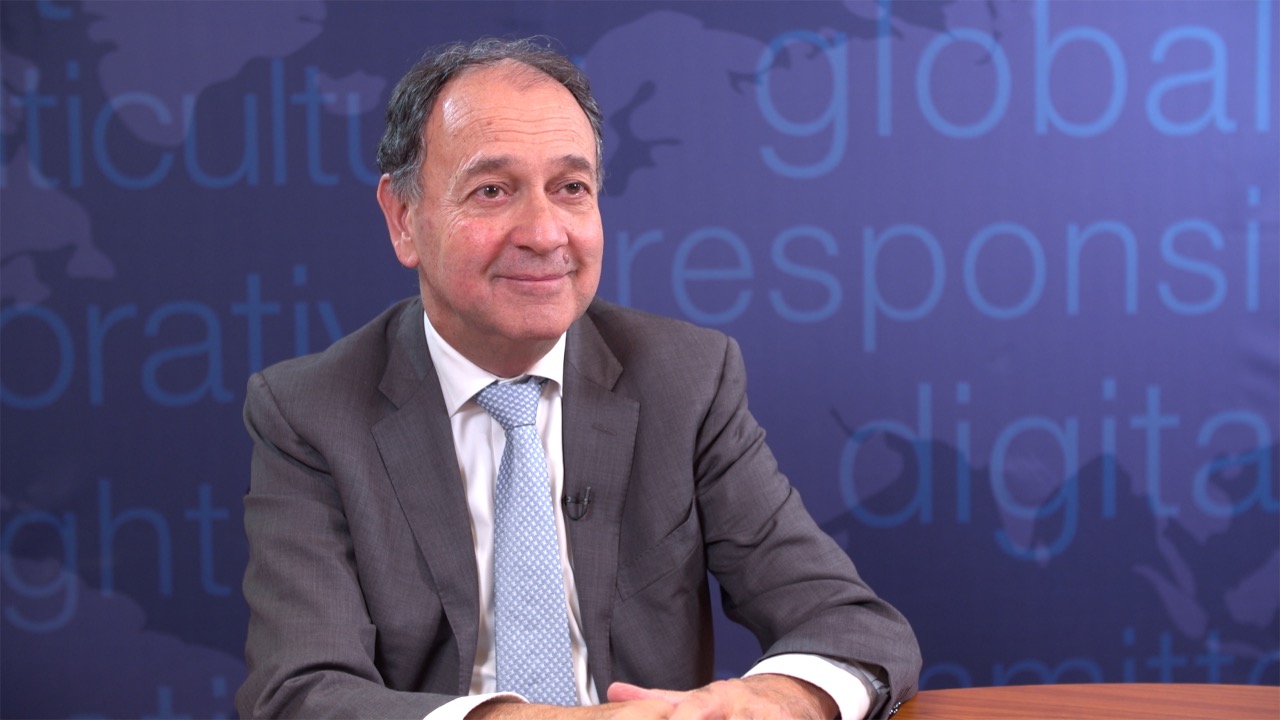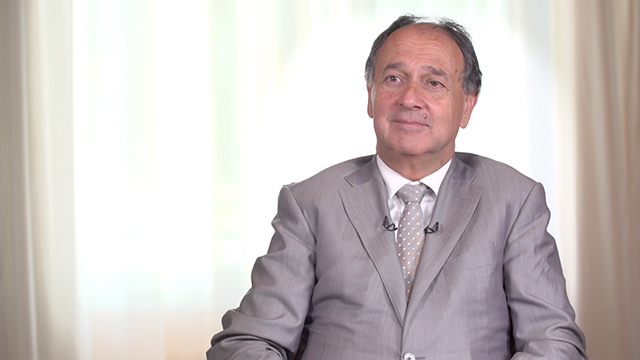EuroBusiness Media (EBM): Capgemini, one of the world’s foremost providers of consulting, technology and outsourcing, reports results for the full-year 2012. Paul Hermelin, welcome, you are the Chairman and CEO of Capgemini Group, what are your comments on your full-year results?
Paul Hermelin: 2012 has been a rather satisfactory year. Pretty solid results, because we could beat most of our guidance, so it’s a year where the demand softened a little bit, but we kept our growth pattern and we delivered the growth we had committed to. So we grew by a little more than 5 points; at constant rate and constant perimeter it’s a growth of 1.2%, which is above the guidance we had given in late July, so quite OK. The margin is even better, since we delivered an operating margin of 7.7%, ahead of our guidance. That’s a 30 basis points improvement compared to 2011, in spite of the difficult Dutch situation. That’s quite good I think, and puts us in a good position as a European player. So that’s a good result. We have also a good result on net profit, which is significantly ahead of the market expectation. And last but not least, a very nice cash collection in the second half, since we could deliver close to 500 million euros of free cash flow, which is significantly more than what we had guided for. That takes into account some anticipated payments, but even when neutralising that, we are still at 400 euros million, which is clearly better than the 250 euros million we had guided for. So a quite good year overall, even if Q4 saw a little of a slow-down, but in the fourth quarter we had good bookings that compensated for the third quarter and we left the year with a book-to-bill that is quite good. So a solid year I would say. Based on these solid results, the Board has decided to propose to the General Assembly a dividend of 1 euro per share. This is more than our historical pay-out ratio, but I think with our cash situation we can easily absorb it, so we maintain the dividend at 1 euro per share.
EBM: What is your outlook and guidance for 2013?
Paul Hermelin: We start the year with a relatively soft European market, as everybody knows and expects, so that will not help. We have a strong American operation and we will grow there and we have some forces in emerging countries and we will grow there too. So overall, we would expect a revenue evolution that would be comparable to 2011, with probably a slower start and an acceleration throughout the year. Regarding the margin itself, we commit to the same kind of margin improvement than we delivered in 2012 - so another 30 basis points - so we commit on over 8% operating margin in 2012. And again, a solid cash flow generation, because this year we take a specific commitment to reduce our restructuring costs from 165 to 80 million euros. That will help us with the cash flow generation and we commit on the cash flow generation over the two years, of more than 750 million euros. So quite satisfactory. Let’s say we take the year with prudence, but we think we could deliver another year of solid results.
EBM: What will be your growth drivers this year?
Paul Hermelin: In the European context, I would just say people are in a soft, but steady environment. There are less uncertainties about sudden recession or changes, so our clients operate in a world of steady evolution. Not necessarily high growth, but steady. In that environment, they can invest, but they are very careful and selective about investments. So what do we see? We see mainly two directions. One is cost control, cost competitiveness. Then we sell shared service consolidation, service provider consolidation, offshoring, which are the usual tools of cost competitiveness. But there is also a demand for innovation, notably when the demand goes with customer relationship. In all the digital world, with the new channels for customers - so it could be social network, it can be new models -, there is a demand for innovation and notably in the world of cloud, and cloud becomes the rule in our world. In the world of cloud, a world of mutualising infrastructure with payment as you go - so you are not charged a fixed amount but you are charged in proportion to your actual consumption -, we see big movements, notably in the US. And we are today, probably one of the best, if not the biggest partner of a new player like Amazon Web Services, or we have a new cloud service with EMC for instance that we deployed not only in Europe but also in Brazil. So we are an innovator with cloud and new customer relationships and we’ll have to invest in cost competitiveness, as ever.
EBM: Off-shoring seems to be accelerating in every large European country, except for France and perhaps Spain. What are your comments on this trend and why do you think this is happening everywhere except in your domestic market? How do you plan to benefit from this trend?
Paul Hermelin: Today, the Group has increased further it’s (what we call) “offshore leverage” - the proportion of billable resources that work from emerging countries – which has reached 40%. So it’s growing again and probably a tough market will push that further. It’s now somewhat stabilised in the US, we still progress in the UK and we now progress in continental Europe. It’s clear that what I would call the Anglo-Saxon part of continental Europe, i.e. Benelux and Nordic, have embraced off-shoring, notably the Indian off-shoring model. We start to penetrate significantly Germany. For the first time, it’s a non English speaking market. So, will it bite into France? My gut feeling is it will. So I think 2013 will be the year of significant increase of off-shore penetration in Nordic and Germany, and France might follow. I would add that to organise that we want to gain market share there. So we have organised a new model of a go-to-market which we call internally “Radical Rightshore®”, an internal pure player organised within Capgemini, and we have recorded significant wins. In Germany we had a famous win with Bayer and now with Eon. In Nordic, after Ikea, I now think of some large telecom operator of the Nordic zone and even some large public sector, and we start to see some competition even in France. So my view is we should grow off-shore. We will grow our Indian headcount certainly close to 15% which will position us as one of the most successful Indian players.
EBM: What can you tell us about your latest large contract wins and your current pipeline of upcoming large deals?
Paul Hermelin: Today, we don’t see the mega deals that we could have signed in the 90s. They are large deals but they are not mega deals. Probably advised by special companies, our customers tend to slice their contracts into different towers, as they say. But they are sizeable ones. We signed a big one in the world of testing with ANZ, and with a large American bank. We signed big deals in the new technology - big volume would be for data analytics which I think are bigger than what we can sign for mobility -, a sizeable deal with a large consumer goods company, a sizeable deal to come with a German telecom player. So there are big deals there. And then we see a few multi-tower deals. We signed a big one in the world of insurance with Direct Line, which is a spin-off from RBS. And we have a few ones that are cooking, but here I would just say deals that are more in the category 100 to 200 million euros and I don’t see, for the time being, big deals of 500+ million euros.
EBM: Is your current strategy bearing fruit in terms of margin preservation and margin expansion? How do you rate your ability to improve margins in the current pricing and growth environment worldwide?
Paul Hermelin: Two things: The first one is I think Capgemini is now proven as a resilient company. So we grew margin even in a pretty mediocre environment. The second point is that when we say today a modest growth as has been last year, we grew in terms of volume of work by 5 points. We grew by 1.2% at constant rate and perimeter, but we grew our volume of work by 5 points which means that we grew mainly offshore. And if you look at our headcount growth, all of our growth came from offshore countries, notably India. Consequently, the revenue per head tends to go down a little bit, but as the margin is better for offshore work, it helps us push the margin up. So we think we will use the offshore ramp-up to push the margin. We always said we wanted to reach 10%. It’s not a year that we will substantiate a massive margin improvement in the pretty rainy climate that goes throughout Europe. But it’s a year of further solid margin progression. The 10% goal is still my ambition.
EBM: Finally, you’ve recently made some organisational changes at the Comex level. What can you tell us about the new managerial roles?
Paul Hermelin: First, Serge Kampf has decided to step down from his Chairmanship, he stays with us as Vice Chairman, but I have new responsibility and I have reorganised my agenda accordingly. I want to keep a lot of time for large customer relationship and key talent detection and promotion. So I have decided to delegate some operational control to a few deputies. I hope it’s not another layer - we all hate adding layers -, but I would say I took five key members of the Group Executive Committee and have delegated to them my power of operation control. So the first is the new CFO, Aiman Ezzat. I’ve asked three operators to monitor for me the whole Group operations, Olivier Sevilla, Salil Parekh, Patrick Nicolet, who will, on my behalf, drive the operations. And the last one is Aymar de Lencquesaing who will deal with the Group common resources, people, India, and shared services. So I work with 5 people. I would like them not to be considered as a layer, but my representation for some tasks that I will delegate to them to have more time for strategy, clients and people.
EBM: Paul Hermelin, Chairman and CEO of the Capgemini Group, thank you.
Paul Hermelin: Thank you.

